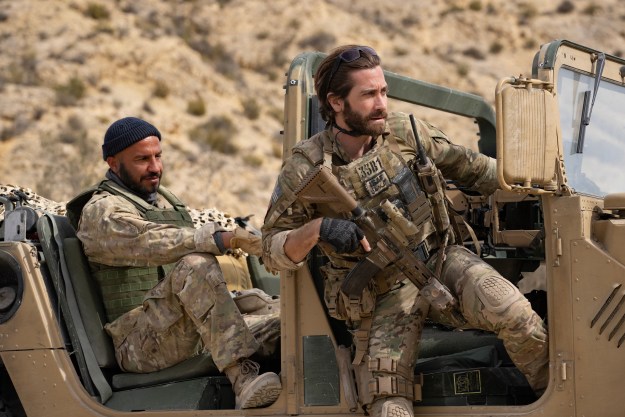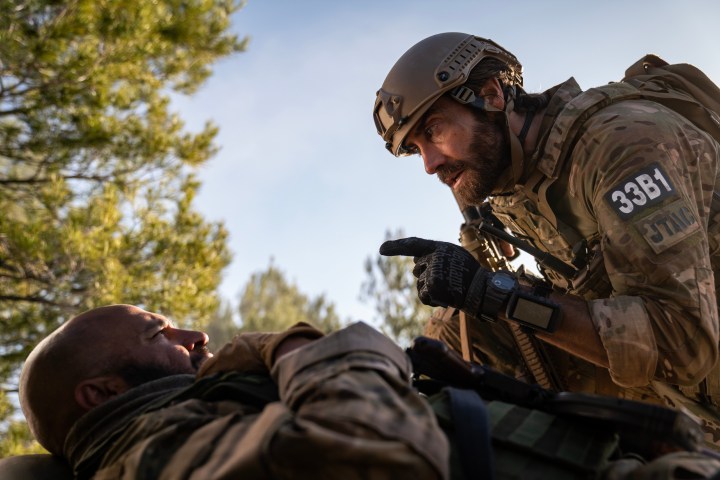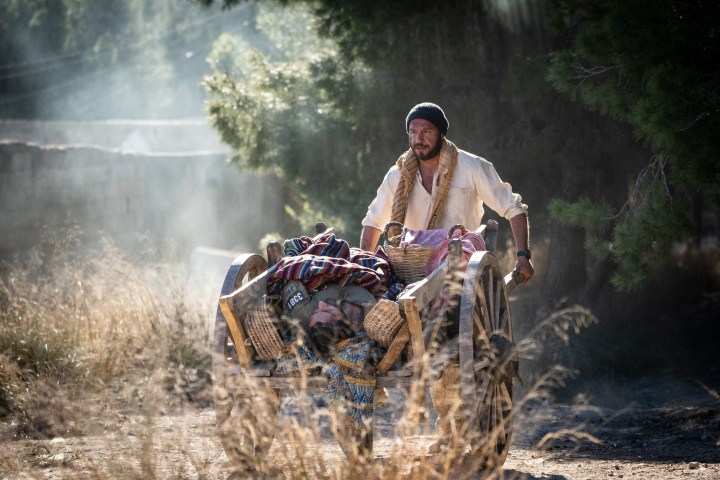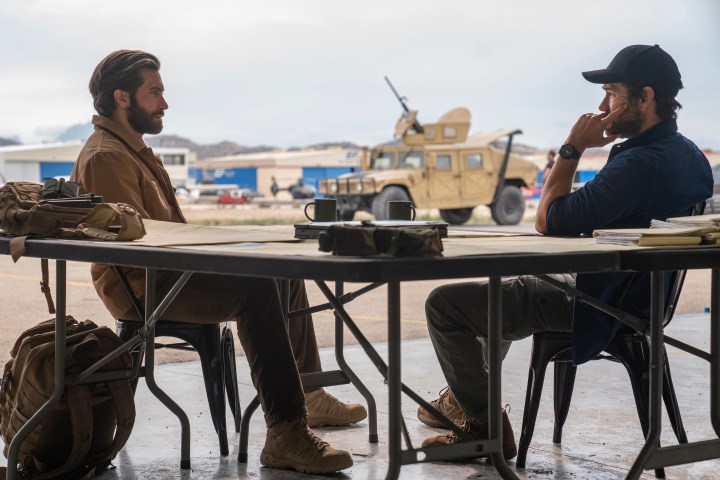
“Guy Ritchie's The Covenant is another thrilling action flick from its director that not only cements Ritchie's status as one of Hollywood's last reliable craftsman, but also announces Dar Salim as a star worth paying closer attention to.”
- Dar Salim's star-making lead turn
- Several thrilling action set pieces
- Jake Gyllenhaal and Dar Salim's believable on-screen chemistry
- A slightly rushed third act
- Cringeworthy dialogue throughout
- A political message that doesn't feel as sharp as it could
There is no mainstream filmmaker alive right now who seems as content with making middlebrow action thrillers as Guy Ritchie. To be fair, there’s also no director working today who is quite as good at doing it as Ritchie. The filmmaker came up in the 1990s and 2000s during a period when action directors couldn’t rely on CGI to do as much of the work for them as many do now, and that shows in Ritchie’s work. Even when his films don’t quite narratively or tonally hold together as well as one would like, there’s never a question that Ritchie still knows exactly how to place and move his camera at any given moment.
That was true in his offering earlier this year, the underrated crime comedy flick Operation Fortune: Ruse de Guerre, and it’s true once again in Guy Ritchie’s The Covenant. The new film is a straightforward, sincerely made military thriller that rarely handles its moments of melodrama or emotional introspection as well as it could, but is nonetheless never anything but wholly engaging. More than anything, it proves once again that there simply are not many directors working right now who are better at navigating the lost art of the midbudget action movie than Ritchie.

Co-written by Ritchie, Ivan Atkinson, and Marn Davies, Guy Ritchie’s The Covenant follows John Kinley (Jake Gyllenhaal), a U.S. military sergeant who suffers an unexpected loss in the film’s intense, surprisingly succinct opening scene. The death of one of his soldiers leads to John crossing paths with Ahmed (Dar Salim), an Afghan interpreter who is inducted into John’s squadron in order to help it locate and destroy some of the Taliban’s hidden explosive sites. In his role, Ahmed quickly proves himself as someone who is willing to disobey orders in order to save the lives of himself and the other men in his unit.
While he and John frequently butt heads throughout The Covenant’s first act, the two characters are forced to depend on each other after one of their missions takes a deadly turn. When Gyllenhaal’s determined military leader is nearly killed shortly afterward, Salim’s Ahmed takes it upon himself to safely transport the injured John across dangerous enemy territory for several days and nights. In doing so, Ahmed unknowingly creates a debt between him and John that the latter feels compelled to repay in The Covenant’s rousing but uneven final third.
Clocking in at just over 2 hours long, The Covenant’s story is essentially divided into three parts: John and Ahmed’s first missions together, Ahmed’s quest to keep John alive, and John’s journey to rescue Ahmed from the Taliban forces that want to kill him for aiding the U.S. military. For the most part, Ritchie and company manage to move through all three sections at a consistently engaging pace, though the film’s third act does feel significantly more rushed than its first two. There’s a similar unevenness present in The Covenant’s overall depiction of both Ahmed and John.

Gyllenhaal plays his Covenant soldier with a level of intensity that moviegoers have come to expect from the actor, which makes it easier to buy into his character’s overwhelming sense of honor. The film’s script doesn’t, however, know how to explore John’s inner turmoil over his debt to Ahmed without veering too far into melodrama. That’s particularly true of two monologues Gyllenhaal gives in the second half of The Covenant, first to his wife, Caroline (Emily Beecham), and the other to his former commanding officer, Col. Vokes (Jonny Lee Miller). In both cases, what should be invigorating and emotionally moving moments of vulnerability for Gyllenhaal’s John instead come across as wooden and stiff.
The film’s handling of Ahmed’s story fortunately feels far more compelling and nuanced, as does Salim’s star-making performance as the mournful, honorable interpreter. Driven into the military conflict by a devastating personal loss, Ahmed’s strength and desire to protect those he feels responsible for are made constantly apparent by Salim, who manages to communicate his character’s biggest moments of panic and fear even when he’s forced to tamp them down. Without Salim’s quiet, resolute performance, The Covenant wouldn’t work nearly as well as it does.
That’s particularly true of Ahmed’s difficult mission to simultaneously escort Gyllenhaal’s John to safety and elude their Taliban pursuers. Behind the camera, Ritchie doesn’t shy away from showcasing the physical and mental demands of Ahmed’s journey. Whether he’s spending several minutes on Ahmed’s undercover interactions with Taliban soldiers or highlighting just how soul-crushing something as simple as rolling a wooden cart up a hill can become, Ritchie ensures that viewers feel the full weight of Ahmed’s quest. Salim’s performance, meanwhile, matches the intensity of Ritchie’s direction.

Ahmed’s journey, as well as the attack that leaves him and Gyllenhaal’s John stranded in the first place, are the strongest and most effective sections of The Covenant. The latter sequence, which follows John, Ahmed, and the rest of their military unit as a seemingly successful mission begins to take a series of increasingly bad turns, is expertly well-constructed by Ritchie. The director pulls off the difficult feat of making sure you feel the chaos and growing desperation of the sequence without ever feeling the need to sacrifice the scene’s visual legibility. Ritchie achieves a similar trick at other points in The Covenant, including in the film’s rushed, but technically impressive climactic action sequence.
In its final moments, Ritchie attempts to make a political statement with The Covenant — namely, that the U.S. military failed to treat its Afghan interpreters as well as it should have before it pulled out of Afghanistan. While admirable, the film’s action-movie preoccupations prevent its political message from landing as hard as Ritchie and his collaborators likely intended. Like many of Ritchie’s films, though, The Covenant still stands on its own as an entertaining and consistently engaging action thriller — one that succeeds on the strength of not only its two stars’ on-screen chemistry, but also the reliable and oft-underappreciated talent of its director.
Guy Ritchie’s The Covenant is now playing in theaters.



